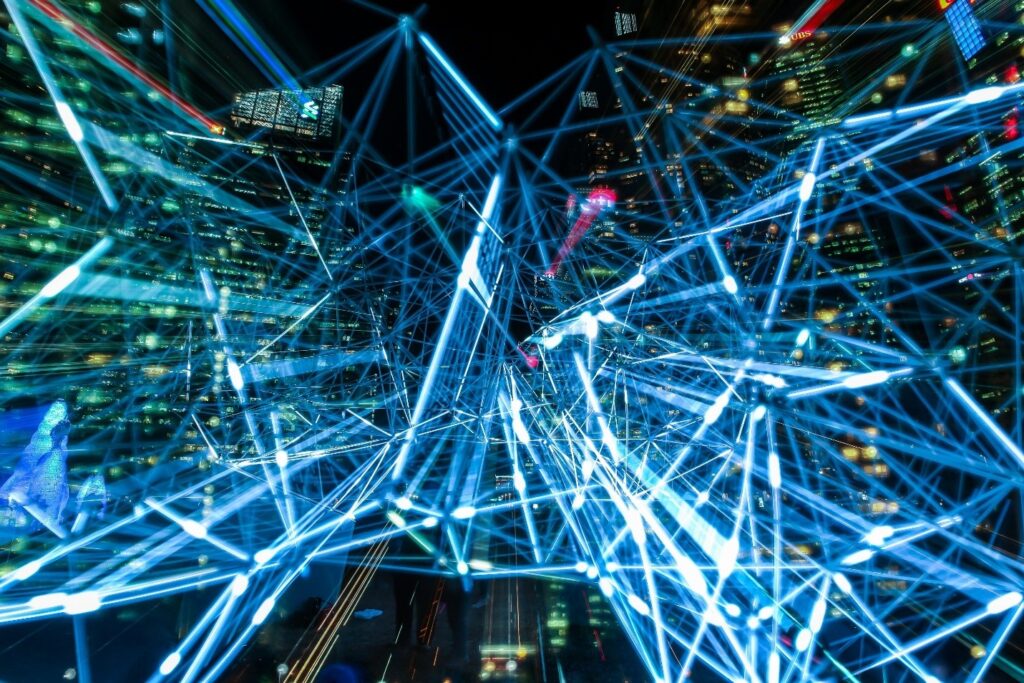The infusion of artificial intelligence (AI) into politics heralds a momentous revolution in how governments and leaders shape their strategies. Amid the alluring prospects of heightened productivity, data-powered governance, and superior policy formulation, the profound ethical and intellectual quandaries unleashed by this metamorphosis cannot be ignored. It’s an electrifying era of change, with AI as the lightning rod of transformation.
Nothing short of a revolution has occurred as a result of AI’s broad penetration into almost every aspect of our lives, including healthcare, finance, transportation, and entertainment. It also has a transforming impact when it enters the political sphere. The attraction of artificial intelligence (AI) in politics stems from its promise to hasten decision-making, optimise resource allocation, and get a more comprehensive understanding of and better meet the requirements of the voters.
At first glance, the fusion of politics and AI appears to be a heavenly match, promising streamlined bureaucracy and enhanced governance. However, beneath this polished exterior lies a complex labyrinth of challenges. The primary concern emerges in the realm of data privacy and security. AI’s dependence on vast datasets demands responsible handling of sensitive information by governments. Safeguarding personal data is a Herculean task, and political leaders must confront this issue head-on to establish trust with their constituents.

The philosophical dilemma goes well beyond just data privacy and probes the basic foundations of decision-making. One cannot help but consider the dangerous balance between human judgement and computer reasoning as AI technologies pervade the decision-making process. Are we prepared to hand over some of our decision-making processes to these computerised tools? Politics and AI are interacting in a way that blurs the line between governance and automation, raising the existential question of how much sovereignty we are ready to cede to machines.
Additionally, the rise of AI in politics has made inequality a more pressing concern. Across the political spectrum, there are significant differences in the availability and skilfulness of AI technologies. Wealthier countries and candidates frequently possess the tools necessary to properly harness AI’s power, giving them an edge over others in political decision-making. This scenario sets off a raging discussion about equality, fairness, and the looming danger of marginalising less technologically advanced or economically underdeveloped nations. In this politically driven by AI environment, power and privilege are being heated to a blazing crucible.
Yet another formidable concern looms on the horizon: the potential for AI to solidify preexisting biases and power structures. Machine learning algorithms are only as unbiased as the data they’re fed, and if historical data carries biases, AI systems can perpetuate and, even worse, amplify those very prejudices. This casts a disquieting shadow over the prospect of equitable and impartial governance facilitated by AI.

This complex topic is further complicated by the nuanced impact of AI on political campaigns. Campaign strategy, including messaging and hyper-targeted advertising, may be influenced by AI-powered analysis of voter opinion and behaviour. Despite the possibility that this strategy would increase campaign effectiveness, it raises troubling moral questions about the shaping of public opinion. We are compelled to examine the limits of political ethics and equity with an unwavering gaze because the intellectual and moral repercussions of using AI to influence voters are profound. In this region, the nexus of politics and technology sparks a moral crucible of epic dimensions.
Setting aside ethical concerns, the infusion of AI into politics holds the latent power to upheave established power dynamics. Autonomous AI systems are poised to offer suggestions and, in some cases, render decisions devoid of human interference. While this may usher in a new era of efficiency and lessen the stranglehold of vested interests, a pivotal query looms large: When the chips are down, to whom do we ascribe responsibility for decisions steered by AI? In times of failure, is the algorithm itself culpable, or should we direct our accusatory gaze at its human custodians? It’s a vexing enigma that clamours for resolution in the complex web of AI and politics.
The implications of incorporating artificial intelligence into the world of political decision-making are vast and nuanced beyond words. While AI has the unmatched potential to improve the efficiency of government and the quality of policymaking, it also leaves behind a complex web of philosophical and moral conundrums. We must overcome the difficult obstacles of protecting data privacy, defining decision-making authority, reducing bias and inequity, examining campaign manipulation, and establishing accountability.
As AI continues its relentless infiltration of the political landscape, we stand at a crossroads, a defining moment demanding the delicate art of balancing the utilisation of AI’s potential for societal betterment with an unwavering commitment to our shared values and principles. The merger of politics and AI is a transformative odyssey, and the choices we make along this path will wield immense influence over the destiny of our political decision-making processes. It’s an intellectual and moral expedition of paramount significance.
Sources
- https://www.cambridge.org/core/journals/data-and-policy/article/artificial-intelligence-for-political-decisionmaking-in-the-european-union-effects-on-citizens-perceptions-of-input-throughput-and-output-legitimacy/E9796EC30B786810ABA8CCD7316DECB6
- https://www.sciencedirect.com/science/article/pii/S0740624X21000137
- https://www.cfr.org/blog/artificial-intelligence-enters-political-arena
- https://www.cicerofoundation.org/wp-content/uploads/Zekos_AI_Chance-or-Danger.pdf
- https://www.law.ox.ac.uk/the-use-of-artificial-intelligence-in-government/use-artificial-intelligence-government-and




